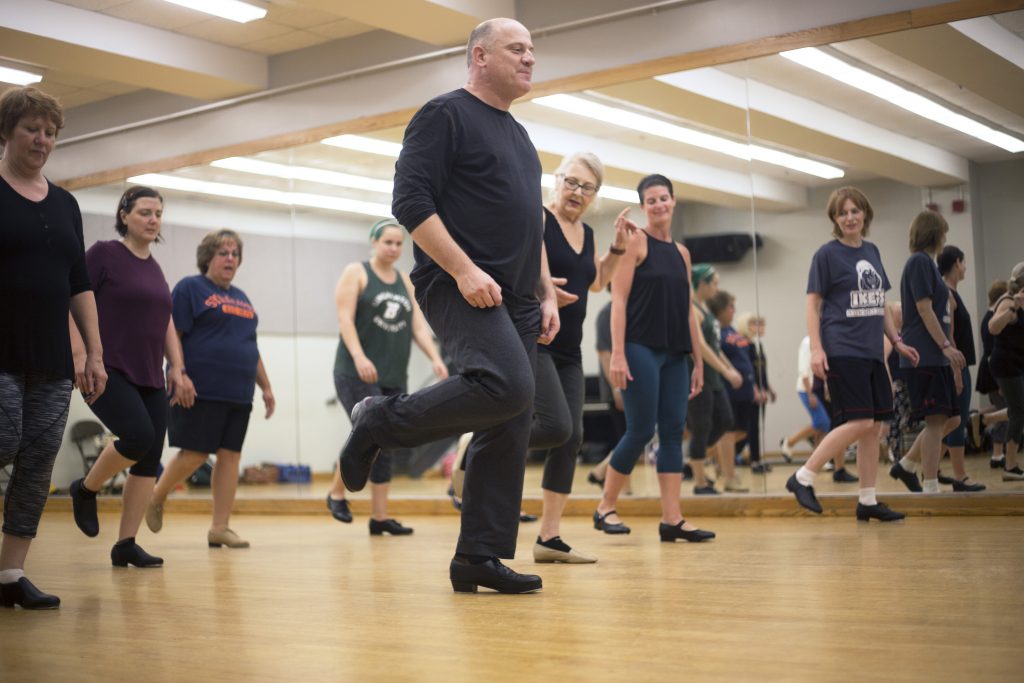
This semester, the theatre department is taking professors back in time and making them become students again. A new initiative focusing on dance seeks to bring the rhythm to faculty and community members with a series of classes throughout the semester.
Every Monday from 6 p.m. to 9 p.m., dance classes for adults are being offered in Room 104 of the Fine Arts Building. There are three different classes being offered: tap dance from 6 p.m. to 7 p.m., jazz dance from 7 p.m. to 8 p.m. and African dance from 8 p.m. to 9 p.m. Each course is being led by a different instructor, with each instructor replicating their unique classroom environment.
Samuel Elikem Kwame Nyamuame, the instructor of the African dance class and visiting assistant professor of music, said that staff and faculty had taken up interest in what dance at Binghamton University had to offer.
“I’ve had [staff and faculty] come to see performances and the reaction I see from the performances was that if we [offered them lessons] it would be wonderful,” Nyamuame said. “But we didn’t know it would turn out to be something great like this.”
Nyamuame hopes these classes will bring some physicality to the staff, who are often rendered to long days behind computers and within the classroom.
“Basically, we just want people to know what we do here and how they can also benefit,” Nyamuame said. “It’s not only for students, but staff and faculty should also have fun. Especially also with the stressful work sitting in an office, it would be nice to do some cardio and physical work … I want people to work out … [The staff has] been talking to me about that for a long time. They want to exercise.”
The invitation to take the classes also extends to the greater Binghamton community, bringing an opportunity for those outside the University to experience the intersection of academia and aerobics.
Celia Klin, a professor in psychology and senior associate dean of undergraduate academic affairs, said she was excited that these classes were being opened to staff after a long-standing curiosity in the department.
“I danced a lot when I was growing up and I haven’t danced much since then,” Klin said. “So when I saw that there were classes being offered, I thought I would give it a shot. It was accessible for everybody, it was high energy, it was welcoming … It was a great class.”
For Nyamuame, the classes are also an opportunity for faculty to receive some firsthand experience in cultural diversity. More specifically, Nyamuame hopes people take the class as a reminder that people should value their connections to others, especially amid our contentious social climate.
“A lot of people appreciate African music and dance, but they don’t know what it is,” Nyamuame said. “I want people to understand that African music and African dance as a holistic art form has so much to offer and people will learn about the countries [and] the way they make music in context and how significant those movements are to them. In an African context, if you don’t relate to your neighbors and your friends, you’re considered rude. In most African societies, the only insurance that you have in life is how best you relate to people. The community checks on everybody … Connecting with people is very important.”


